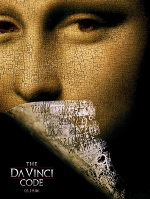"People need accurate, timely and unbiased information, especially on religious issues," Yaw Boadu-Ayeboafoh, editor of Ghana's "Daily Graphic" newspaper, told delegates at the recent All-Africa Conference on Religious Liberty. "People rely on the media to explain issues, policies and programs aimed at moving nations forward."
In a speech entitled "The Role of the Media in Promoting Religious Liberty," Boadu-Ayeboafoh emphasized the public service nature of media, and the responsibilities that go along with such a service.
"The great Indian patriarch Mahatma Gandhi has noted that the media are capable of good and evil and it is imperative that journalists exercise caution in the discharge of their responsibilities if they are to contribute meaningfully to religious liberty," he said.
"In Ghana, journalists and all others are enjoined to work conscientiously in our lawfully chosen professions against the background that we must work to uphold religious pluralism," Boadu-Ayeboafoh added. "That means that we have to relate fairly to all established religious groups without pandering to the interest of any. Adherents must be well-informed since an ill-informed congregation cannot hold their leaders accountable to their mandate when there is any perversion of the faith."
He noted, "It is particularly in the area of ensuring a balance between religious freedom and free expression that sometimes the Ghanaian media have been challenged."
While Ghana has been spared the travails of the Nigerian media, where a write-up of a fashion show evoked criticism for a journalist's suggestion that the prophet Mohammed could have picked one of the contestants for a bribe, or of Denmark and other places where caricatures of Mohammed were published, resulting in riots and deaths, Boadu-Ayeboafoh noted that some reporting on Christian topics has inflamed local passions.
"In two incidents, one in Accra and the other in Kumasi, two guests of some radio stations who made statements that some Christians, considered apostate, were nearly beaten up and had to be sneaked from the studios to safety. One of the perverts claimed that he was Jesus Christ," he said.
At the same time, Boadu-Ayeboafoh said, some Christians have tested the limits of free expression: "On a daily basis, however, Christians taunt idol worshippers and mention the names of their gods in vain," he said.
The editor also noted that under Ghana's constitution, it's possible for religious ideals and public policy to come into conflict.
"There are also some religious bodies whose beliefs run counter to provisions of our constitution on the welfare of children, including blood transfusion. [Ghanaian law] states that 'No child shall be deprived by any other person of medical treatment, education or any other social or economic benefit by reason only of religious or other beliefs. Children under Ghanaian law are those below eighteen years,'" Boadu-Ayeboafoh mentioned.
"Thus, in our attempt to reconcile freedom of expression and religious liberties, we have to exercise caution in situations when some religious adherents refuse or deny their children, medical treatment, including immunization due to religious faith."
He added, "Faced with such issues that could be subjective, the media must seek to provide the public with information that will enable the people to make intelligent meaning and choices of the religious faith they want to practice."
The mission of the media is not to take the role of a preacher or a politician, Boadu-Ayeboafoh said, but rather to report accurately and with insight.
"We must let our people have a belief in human dignity and the essence of religious pluralism and liberty in reason rather than in force and guarantee the use of the media to support and promote open and religious liberty," he said. "As our contribution to quality religious relationship[s], journalists have to be honest, fair and courageous in gathering, reporting and interpreting information by always seeking the truth."
Boadu-Ayeboafoh said his newspaper did not shrink from covering difficult issues.
"We were not exercised when after a publication of a story on an American Catholic priest who died of AIDS, a delegation led by the Apostolic Pro-Nuncio came to our offices to curse us, neither were we disturbed when the Presbyterian Church lashed at us for publishing a story of a priest of the church who raped a sick woman on her hospital bed," the editor noted. "Nor were we dismayed when the Methodist Church sent us a contemptuous letter over an injection case involving the Synod Secretary. So also were we not discouraged when the Anglican Church sent us an emissary to dissuade us from publishing the story of the Anglican Bishop in the US who admitted [to] being a homosexual."
Journalists must publish one thing only, Boadu-Ayeboafoh said, and that is the truth.
He concluded by quoting Adam Michnik, the noted Polish dissident and founding editor of the Gazeta Wyborcza ("Electoral Gazette") newspaper, who said, "The only limitation to our freedom is the truth. We are allowed to publish everything we write, but we are forbidden to lie. A journalist's lie is not only a sin against the principles of our profession; it is also a blasphemy against our God. A lie always leads to enslavement. Only the truth has liberating power."


